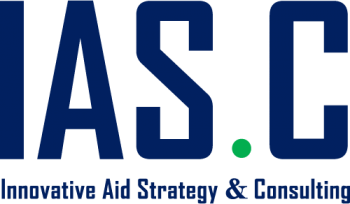How overhead funding rules starve grassroots NGOs
- May 24, 2024
- Posted by: Innovative Aid Strategy & Consulting
- Categories: Funding trends, Humanitarian, International, International Development

From The New Humanitarian, published on Mai 2024
View Original
WASHINGTON
Ibrahim Kamara has a modest dream for the disaster relief NGO he heads in Sierra Leone: He wants to find a donor that will help him hire staff and pay the bills.
“If I had that opportunity, it would be like a saviour from heaven,” said Kamara, a former child soldier who founded Safe Haven Adaptive Response Program, or SHARP, to help flood-prone, low-income communities in the capital, Freetown.
The volunteer network monitors weather alerts and evacuates vulnerable households, in a city where local authorities say climate change is increasing the frequency of floods and landslides. It provides dry shelter, food, clothes, and other living essentials to impacted families.
But in all its years of fundraising, SHARP has never received money to pay administrative costs like office expenses or salaries for its disaster response work. The NGO relies heavily on volunteer labour, and it fundraises from within the neighbourhoods it serves, as well as among supporters in the United States.
Humanitarian donors have heavy restrictions on overhead funding, and these are keeping frontline groups like SHARP small and struggling to stay afloat.
Watchdogs like Charity Watch like minimal overheads. Their ratings system gives high marks for low overheads – aid money is supposed to be spent on projects and aid, not on salaries for the people implementing the project, the rationale goes. But the restrictions have a lopsided impact on tiny local NGOs, from Freetown to Lagos, or Cameroon to Malaysia.
Without enough overhead funding, small NGOs struggle to hire or retain staff, or pay the bills. It can even expose them to more risks, as local NGOs lack the funding to pay for staff training and security protocols in high-risk environments.
Some analysts call it a “starvation cycle”: Trickles of funding give local NGOs just enough to implement short-term projects, but not enough to invest in improving and becoming financially independent. It’s one of many systemic problems that compound long-held power imbalances and the continuation of colonial legacies in international aid, where power is entrenched in the hands of traditional donors and big aid agencies instead of frontline responders.
In between fundraising, planning budgets, and networking, Kamara spends significant time just wrangling volunteers, who come from the same struggling communities they’re trying to help: “I spend many hours on the phone,” he said. “You know, pleading: ‘Please, you need to come and help out; if you don’t come there will be a problem.’”
The system’s paradox
The humanitarian sector’s overhead funding paradox trickles down throughout the system.
Government donors give the bulk of their humanitarian funding to UN agencies and international NGOs, who pass some of it down to national and local NGOs. Small grassroots NGOs, civil society organisations, community groups – with few or no staff to apply for, monitor, or report back on grants – see the smallest cut.
The system relies on UN agencies and international NGOs to pass on equitable shares of their funding, since government donor funding rarely goes directly to local NGOs.
In a 2022 survey of dozens of NGOs around the world, two thirds said their funders gave “less than their fair share” of admin costs. Half said they had reserves able to keep their organisations afloat for only 21 days or less.
Analysts say most donors recognise the problem. In recent years more UN agencies and international NGOs have shifted their policy to explicitly allow overhead funding.
Recently passed legislation in the United States increases the share of grants that local entities can spend on overheads from 10% to 15% (one study suggested that organisations’ actual admin costs hovered at around 31%). The EU’s humanitarian aid arm, ECHO, created guidelines last year calling for “an adequate, equitable amount of indirect costs” to be passed on to local NGOs.
But change has been slow to reach the ground. Some of the smallest NGOs with the least bargaining power – but with intimate understanding of the people they help – continue to be starved of overhead funding.
Sally Mboumien, the director of COMAGEND, a small gender equality NGO in Cameroon, often experiences the restrictive edge of donor overhead financial policies.
“I have two projects right now within our organisation that do not pay for office space,” Mboumien said, laughing: “How do they expect us to work? Under a tree?”
Overhead restrictions have forced her and other staff to donate part of their small salaries – raised by a few feminist networks – to pay for their office rent, electricity, and internet.
For more information, please visit: thenewhumanitaire
Leave a Reply Cancel reply
Looking for help with your humanitarian or development innovative actions? Or maybe you’re interested in full training services. Whatever you need, we’re here to help you.
